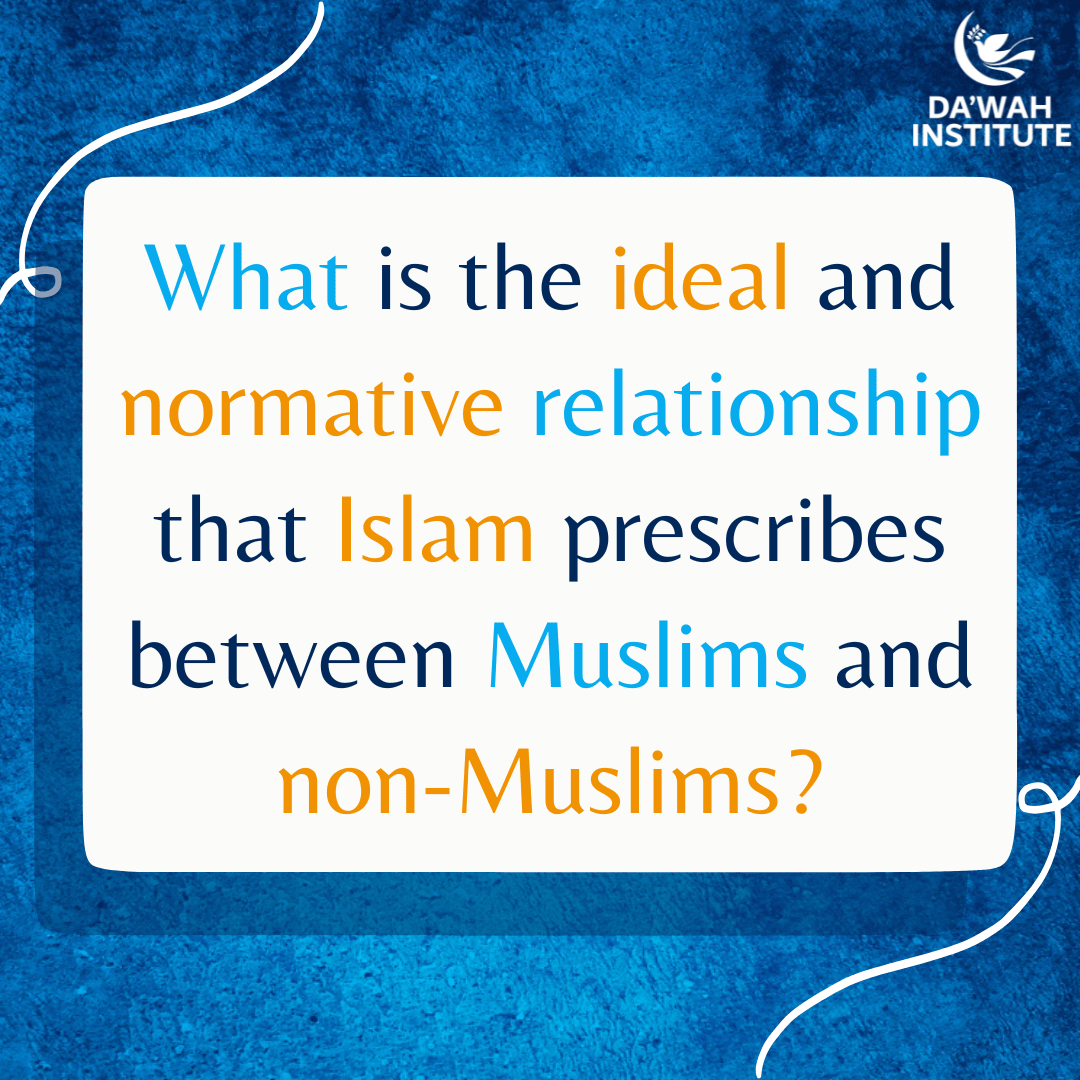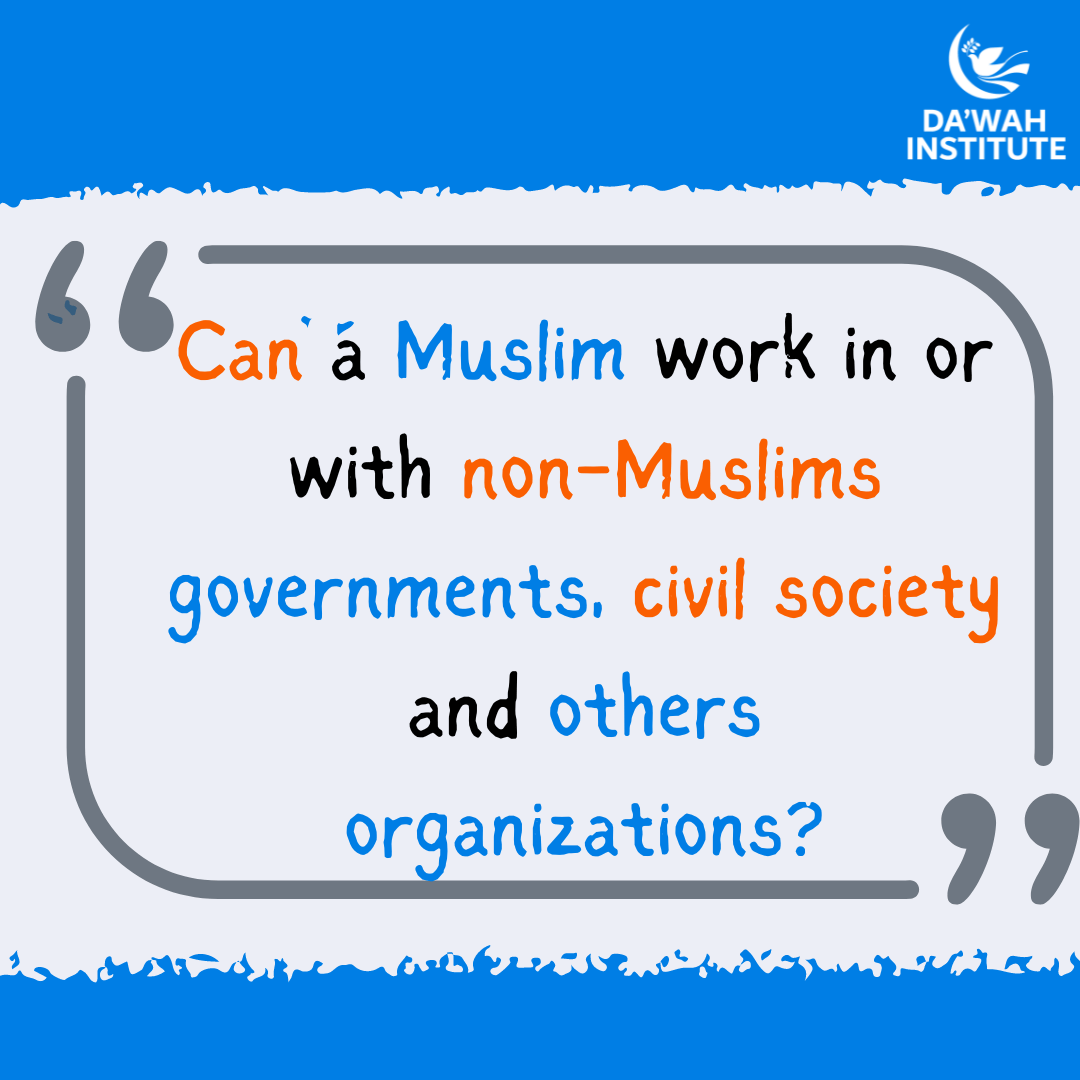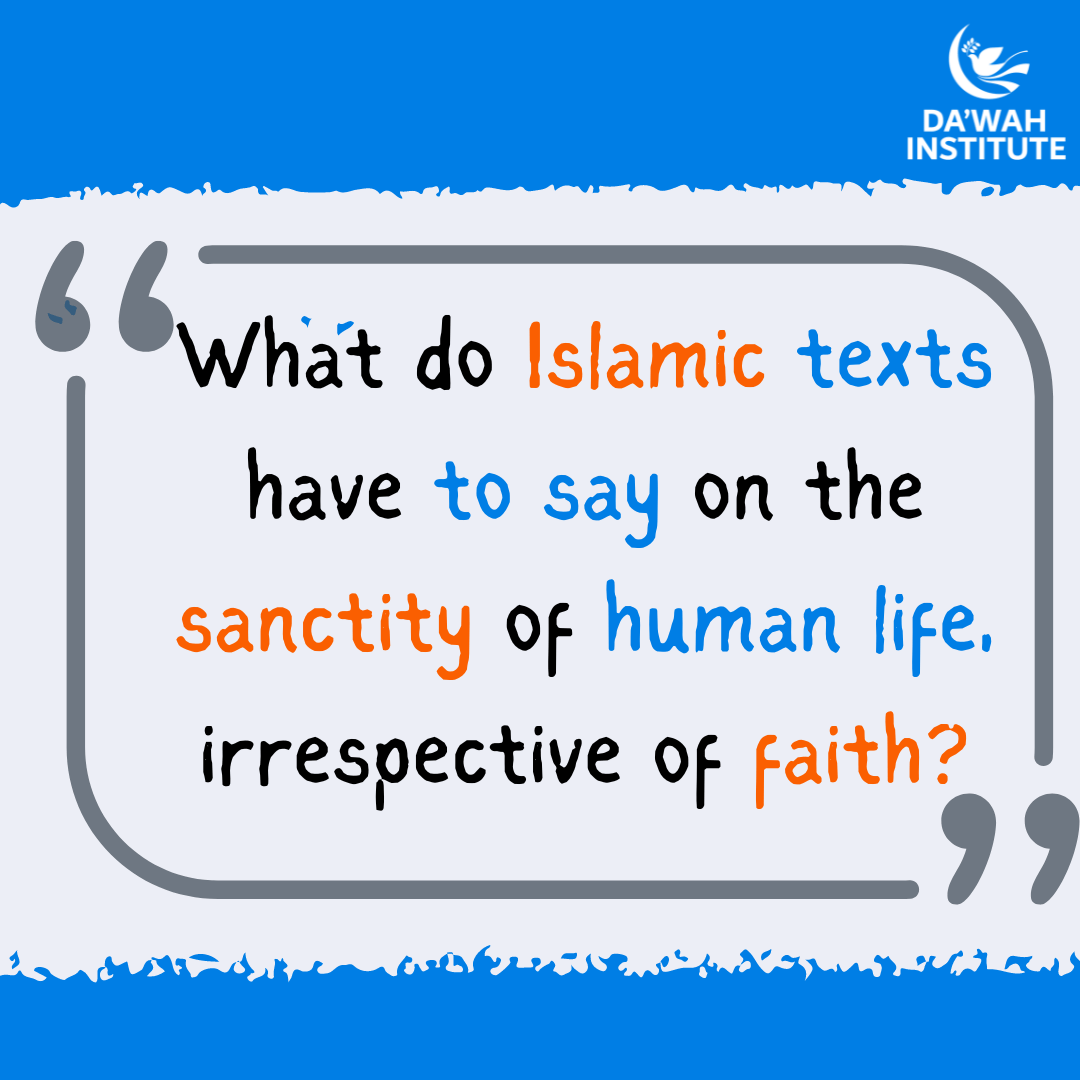
The ideal and normative relationship that Islam prescribes between Muslims and non-Muslims is made explicitly clear in the Qur’an and exemplified in the life of the Prophet Muhammad (p).
Historically, from its inception in Medina, the Islamic state was, and continued thereafter, to be a plural society inhabited by Muslims and various non-Muslim citizens. Its defining feature was justice and equity.
The ideal relationship that Islam prescribes in the Qur’an and exemplified by the Prophet Muhammad (p) is not that of war and hostility as opined by some, rather it is peace, justice, security and promotion of goodness (maslaha) and the higher intents (maqasid) of Shariah and whatever would contribute to or lead to these.
Allah says; “As for such (of the unbelievers) who do not fight against you on account of (your) faith, and neither drive you forth from your homelands, God does not forbid you to show them kindness and to behave towards them with full equity: for verily, God loves those who act equitably.” (Qur’an 60: 8-9)
A number of verses and prophetic traditions make us realize that the normative relationship that Islam prescribes between Muslims and non-Muslims is peaceful coexistence and not enmity or hostility. Below are some of those texts:
• “And if they (your enemy) incline to peace, incline you also to it, and trust in Allah” (Q8:61)
• “Fight in the cause of God those who fight you, but do not commit aggression, for God loves not the aggressor” (Q2:190)
• The Prophet says: “Do not wish to meet the enemy, and ask Allah for safety. But when you face the enemy, be patient, and remember that Paradise is under the shade of swords.” Al-Bukhari, Sahih al-Bukhari, hadith no. 6810. This hadith shows that peace and safety is what Islam desires as a norm and not tribulation and enmity.
All the teachings of Islam related to seeking peace, arbitration, forgiveness, charity, social justice, and the objectives of Shari’ah (Maqasid al-Shari’ah) etc. are all directed towards greater peace in the society.
A study of the day-to-day relationship of the Prophet (p) and his Companions with their non-Muslim relatives and neighbours reveals that Islam encourages normative peaceful relations between Muslims and people of other faiths (People of the Book in particular). Such activities include greeting and eating the food of one another, exchanging gifts and visits, charity, encouraging forgiveness and patience, goodness to neighbours, trade, establishing peace treaties for mutual safety and security, etc. In fact, the Prophet (p) said: “Whoever truly believes in Allah and in the Day of Judgment should honour his neighbour.” Al-Bukhari, Sahih al-Bukhari, hadith no. 5673.





